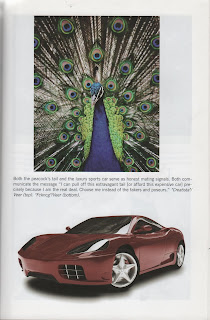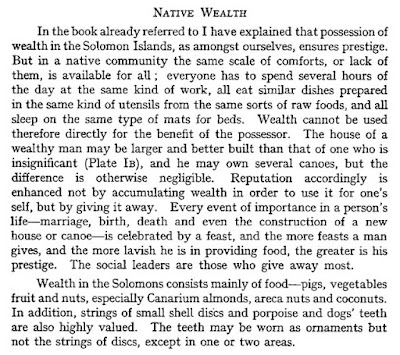I DON'T DRIVE A CAR NOT EVEN A CHEAP, LOW PRICE, LOW-STATUS CAR. I WALK EVERYWHERE ALL DAY, EVERYDAY. I DON'T WEAR NAME BRAND CLOTHES. I DON'T WEAR DESIGNER CLOTHES. I DON'T WEAR SUITS. I DON'T WEAR FLASHY CLOTHES. HELL, SOMETIMES I DON'T EVEN WEAR CLOTHES, BUT WHEN I DO I TYPICALLY WEAR BASKETBALL SHORTS, T-SHIRTS (SOMETIMES TATTERED WITH STAINS), AND FLIP-FLOPS. AND I WEAR THEM ALL DAY AND AT ALL EVENTS (SOMETIMES I SLEEP IN THEM AND WEAR THEM THE FOLLOWING DAY, TOO). I CARRY BAGS WITH ME AND SOMETIMES I PUSH THEM IN A SHOPPING CART. WHAT DOES ALL OF THIS SAY TO POTENTIAL FEMALE MATES? IT ALL SAYS THAT I'M A POOR, LOW STATUS, POSSIBLY HOMELESS, NOBODY AND WOULD LIKELY NOT BE A GOOD MATE BECAUSE I LACK THE RESOURCES (WEALTH) AND PERSONALITY TRAITS TO ACQUIRE RESOURCES (INDUSTRIOUSNESS, INTELLIGENCE, CONSCIENTIOUSNESS, AMBITIOUSNESS, ASSERTIVENESS, EXTROVERSION, AND PRIDE*) THAT FEMALES DESIRE IN A MATE! READ BELOW. (I WEAR THE DOUBLE-BK THAT JAY WEARS TO WORK ON A DAILY BASIS AND I DON'T WEAR IT TO WORK BECAUSE I DON'T EVEN WORK!)
Status pays for humans as well. In one recent study of almost two thousand marriages, women who married better-educated men had more success than others. Specifically, those with high-status husbands had more children, were less likely to get divorced, and were happier in their marriages.
All animals seek mates that help them in their quest for successful reproduction. Features that help in this struggle will be attractive, and women advance their interests by joining forces with high-status men. Have you heard about the powerful female senator who had sex with her young male intern? Neither have we. Great power, when held by women, is not an aphrodisiac.
In addition to status, money plays a central role in male attractiveness. In personal ads, women mention money more than ten times often as men do. Women also advertise for love and commitment, characteristics conspicuously absent from the majority of the ads placed by men. In psychology experiments, women strongly prefer men wearing Rolexes to handsome men wearing Burger King uniforms.
When Jay goes to work some days, he wears what we call "the double Burger King." In fact, both of us divide our outfits into three gradations: "normal," "Burger King," and the aforementioned "double-BK." Although baggy sweatpants and a frayed T-shirt are the most comfortable, we remind ourselves that guys in low-status clothes are ugly.
Why, then, doe Jay sometimes wear a torn T-shirt, shorts, and sandals? When he wants to work extra hard, he knows that he will be so embarrassed by the double-BK look that he won't leave his office. Consequently, he is not tempted to socialize or even go to any campus restaurants.
Women value resources in relationships for the same reason they value status - they further their own agendas with the food, clothing, shelter, and other goods that money buys. Interestingly, women with the best earning prospects place even higher importance on a potential spouse's financial position than do other women. (Mean Genes)
Women also express a preference for men in uniform and well dressed men. A marine in dress blues with white gloves and peak cap, a police officer with boots and a badge, or a well-heeled businessman in an Issey Miyake suit and Testoni loafers all stimulate female arousal. Fashion blogger Teresa McGurk speculates on why women like a man in uniform: "A dress uniform is flattering to the male figure (Oooh-YAH!). The whole demeanor of a man in dress blues, or whites, or whatever is confident and dependable. Very sexy. Since a man in uniform knows all about responsibility and duty, he could well be counted on to take out the garbage. Theoretically, at least." McGurk's analysis also illustrates the influence of the Detective Agency - analyzing visual details and converting them into psychological speculation about a man's character. (A Billion Wicked Thoughts)
 |
| http://www.beyondthepurchase.org/blog/08/do-chick-magnets-really-work-corvettes-testosterone-peahens/ |
A similar experiment using the Hot or Not website was recently conducted to test the premise that a man's physical attractiveness ratings would depend on the car that he is shown standing next to. This particular website allows individuals to post photographs, which are then rated by others in terms of "hotness." It allows for the collection of a large sample of data with minimal effort. The researchers in question uploaded, at separate time periods, one of four photos of the same man, standing either by himself (i.e., without any car visible) or next to one of three cars of varying prestige. When the man was shown next to the most prestigious of the three cars (a Mercedes C Class C300), he was rated as more attractive than when standing alone or when standing next to the least prestigious of the three cars (a tired looking Dodge Neon). Again, hot cars translate into hot men.
We are a hierarchical species. Humans assort themselves on a dominance hierarchy, and accordingly the manner in which people interact with one another is in part determined by their actual (or perceived) social status. Are there social consequences to the car that one drives? Though it may seem incredible, how likely you are to be honked at or how likely you are to honk at someone is highly dependent on the car that you drive. In an elegant field experiment conducted more than four decades ago, researches stopped one of two cars (high versus low status) at a red light. They then measured how quickly the driver in the car immediately behind the "blocking car" would honk once the light turned green. Drivers were more likely to honk and to do so more quickly when blocked by a lower-status car. The patience that was afforded to the drivers of the high-status car appears to be a form of social deference commonly seen in various species that establish dominance hierarchies.
One could also investigate how the car status of the "blocked" drivers might affect the likelihood of an aggressive response. This is precisely what sociologist Andreas Diekmann and his colleagues investigated in a study conducted in Munich, Germany. The blocking car was always a Volkswagen Jetta (apparently perceived as a lower-middle-class car), and the aggressive behaviors included honking and flashing of headlights. A positive correlation was found between aggressive behavior and the status of the blocked cars. It would seem that not only are people deferential to those who drive fancy cars, but also that those who drive such cars are more likely to be bullies! I suppose that the French maxim a tout seigneur, tout honneur (honor to whom honor is due) is applicable here.
The Consuming Instinct: What Juicy Burgers, Ferraris, Pornography, and Gift Giving Reveal about Human Nature. Saad, p. 73-74.
- 29 Dec 2017More"Females were four times more sensitive than males to economic status cues when rating opposite sex attractiveness, indicating that higher economic status can offset lower physical attractiveness in men much more easily than in women," http://www.sciencedirect.com/science/article/pii/S109051381730315X …



7. Material Proof: Income, Wealth, Consumerism, and Security
Consumerist capitalism works hard to convince young men that they must make a lot of money, go into a lot of debt, to buy and display a lot of goods and services in order to attract women. This just isn’t true at all. During some of the periods where I was most successful with women, I was poor (and that’s true for many guys).
Yes, women care about a guy’s material success – but mostly because his education, career success, income, and wealth are hard-to-fake signals of his mental health, intelligence, willpower, assertiveness, and extraversion. Basically, most women care about your money only because of what it means about you (though of course there are women who care about it because of what it can buy for them as well).
The money itself is only useful up to a point: if a woman could support a family with some security on your likely future income (or yours combined with hers), extra wealth beyond that is really only useful if she’s a luxury-addict or gold-digger. The reality is that almost all women would rather have an interesting, fun, middle-class husband they loved to be with than a dull, workaholic millionaire they didn’t spend much time with. In particular, women care more about how much time, energy, and thought a guy is investing in her than how much money he spends on himself or others.
It may not seem that way to you, but in this case, the evidence is very clear that what women say they want and what they pick are the same thing: they care about who a guy is and how he relates to her FAR more than they value how much money he has.
We're A Status Conscious Species Just Like Our Chimpanzee Cousins! Those That You Perceive As Being Of Lower Status Are More Readily Disrespected And Mistreated. Look At ME! I Don't Drive A Car! I Can't! So I Walk Everywhere With Bags In My Hands And On My Back! So How Do You People Perceive ME And Treat ME? You Perceive ME As A Low Status, Homeless, NOBODY Who's Been Shunned (Ostracized) By Family And Friends And Society In General And You Treat ME This Way! This Is What You Automatically And Intuitively Think And Do Without Knowing Anything About ME Other Than Seeing ME Not Driving A Car, But, Instead, Walking With Bags In My Hands And On My Back! I Feel Sorry For You People Who Are Unaware Of Why And What You Think And Do! By The Way, I'm An Exception To Your Perceptions!
ah am sum bah dae! ah am sum bah dae! ah am sum bah dae! - The Honorable Khalid Sheik Muhammad In Mocking Reference To Jesse Al Jackson Sharpton!
Why Do People Post Photos And Video Of Themselves Donating Their Time, Energy, And Money To Charities? See Below.
If Your Main Intent Is To Truly Help The Poor And Needy You Don't Have To Announce It To The World! because When You Announce It To The World You Make It Seem Like Your Main Intent Is To Advertise Your Wealth, Social Connections, And Qualities (Personality Traits) To Allies And Mates!
https://twitter.com/robkhenderson/status/1156200888643571712
https://twitter.com/562sports/status/1341851848420937728
https://twitter.com/JalenPitre/status/1340010898530816000
https://twitter.com/SoleBrothersorg/status/1341860393795215360
https://twitter.com/primalpoly/status/1157692059307790336
https://twitter.com/primalpoly/status/844369578729717760
https://twitter.com/Evolving_Moloch/status/1021155480452808704
https://twitter.com/robkhenderson/status/1269269643371458561
PEOPLE ARE MORE IMPRESSED BY IMAGE THAN INTENTIONS AND RESULTS. WE'RE A FLAWED SPECIES IN A NUMBER OF WAYS.
https://dealbreaker.com/2007/08/if-a-man-buys-a-ferrari-or-gives-to-charity-in-a-forest
https://www.neurosciencemarketing.com/blog/articles/mating-mind.htm#
The results were just what the researchers hoped for. In the romantically primed group, the men went wild with the Monopoly money. Conversely, the women volunteered their lives away. Those women continued, however, to be skinflints, and the men remained callously indifferent to those less fortunate than themselves. Meanwhile, in the other group there was little inclination either to profligate spending or to good works. Based on this result, it looks as though the sexes do, indeed, have different strategies for showing off. Moreover, they do not waste their resources by behaving like that all the time. Only when it counts sexually are men profligate and women helpful.
That result was confirmed by the second experiment which, instead of looking at the amount of spending and volunteering, looked at how conspicuous it was. After all, there is little point in producing a costly signal if no one sees it.
As predicted, romantically primed men wanted to buy items that they could wear or drive, rather than things to be kept at home. Their motive, therefore, was not mere acquisitiveness. Similarly, romantically primed women volunteered for activities such as working in a shelter for the homeless, rather than spending an afternoon alone picking up rubbish in a park. For both sexes, however, those in an unromantic mood were indifferent to the public visibility of their choices.
These two studies support the idea, familiar from everyday life, that what women want in a partner is material support while men require self-sacrifice.
https://thepsychologist.bps.org.uk/volume-22/edition-11/peacocks-tail-altruism
Yet it is also true that men and women value different attributes differently in sexual partners...women tend to pay more attention to information about a man’s wealth, status, and commitment and men tend to emphasis these traits in their adverts (Waynforth & Dunbar, 1995)...These differences change the pay-offs of the mating game, with implications for what men and women are looking for in a partner and what partners then signal. Men pay more attention to looks because they are more concerned with cues of health and fertility; such as hour-glass figure, unblemished skin and lustrous hair. Women are the choosier sex because they invest more and they pay more attention to cues indicating that the man is going to provide resources and stick around. In turn, men who signal these qualities are more attractive as sexual partners. One of the ways in which men can signal their resource quality is by driving around in a Porsche or buying a Picasso. However, this does not give any information about whether they are willing to share these resources with a potential mate. It is therefore probably better for a man to engage in a conspicuous act of generosity, such as buying an expensive gift like a tropical island or founding a charity.
https://twitter.com/DegenRolf/status/1133081694930722817
https://www.youtube.com/watch?v=NrnZkxriIGoThe Science of Lust Full Documentary 720p HD Discovery & Documentary HD 720p
LADIES, LISTEN 25:00-30:27!
30:17 SO THE NEXT TIME YOU SEE A WOMAN BEING NICE DON'T ASSUME THIS IS A SELFLESS ACT. HER UNCONSCIOUS NEED TO EXPRESS HER DESIRABILITY AS A MATE IS PROBABLY GOVERNING HER BEHAVIOR!
https://twitter.com/DrMiriam/status/1659180340882075649
https://twitter.com/Effect_Altruism
https://twitter.com/primalpoly/status/1357044447616319495




















